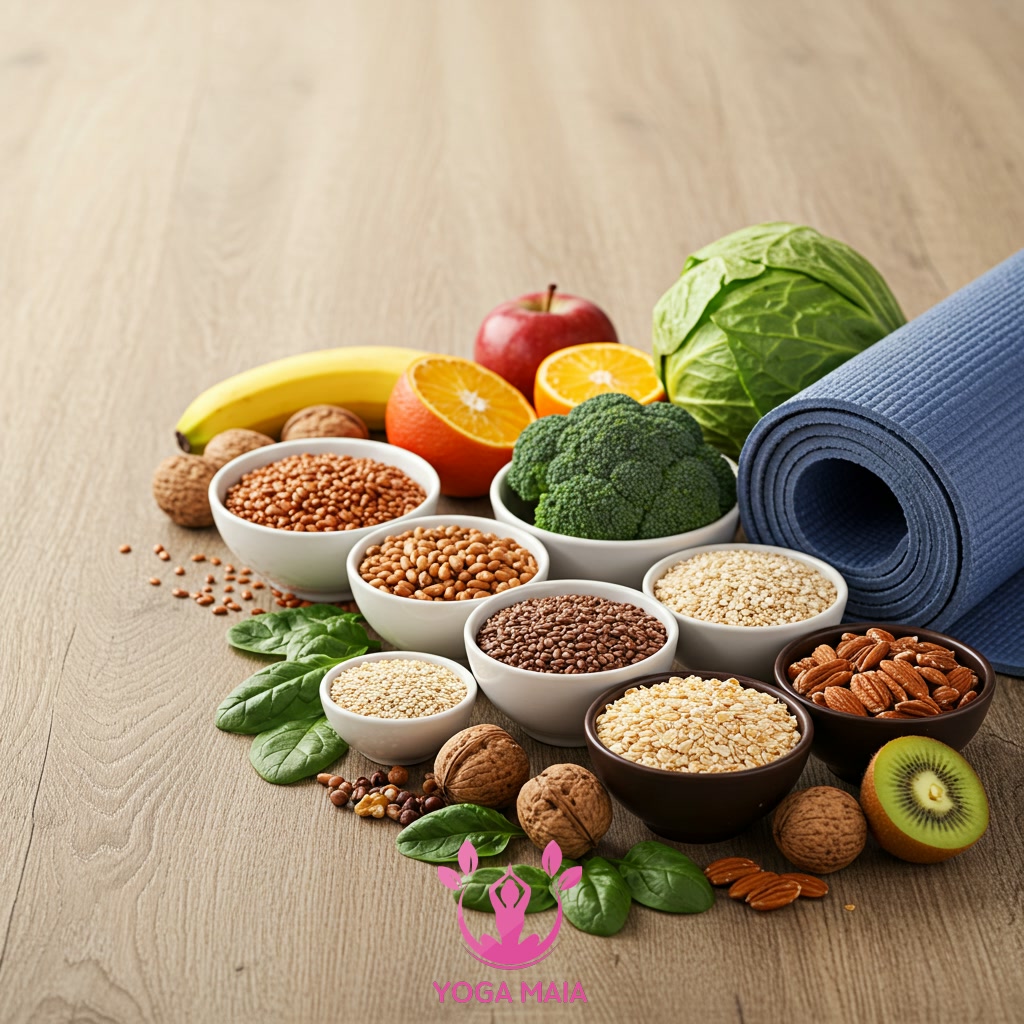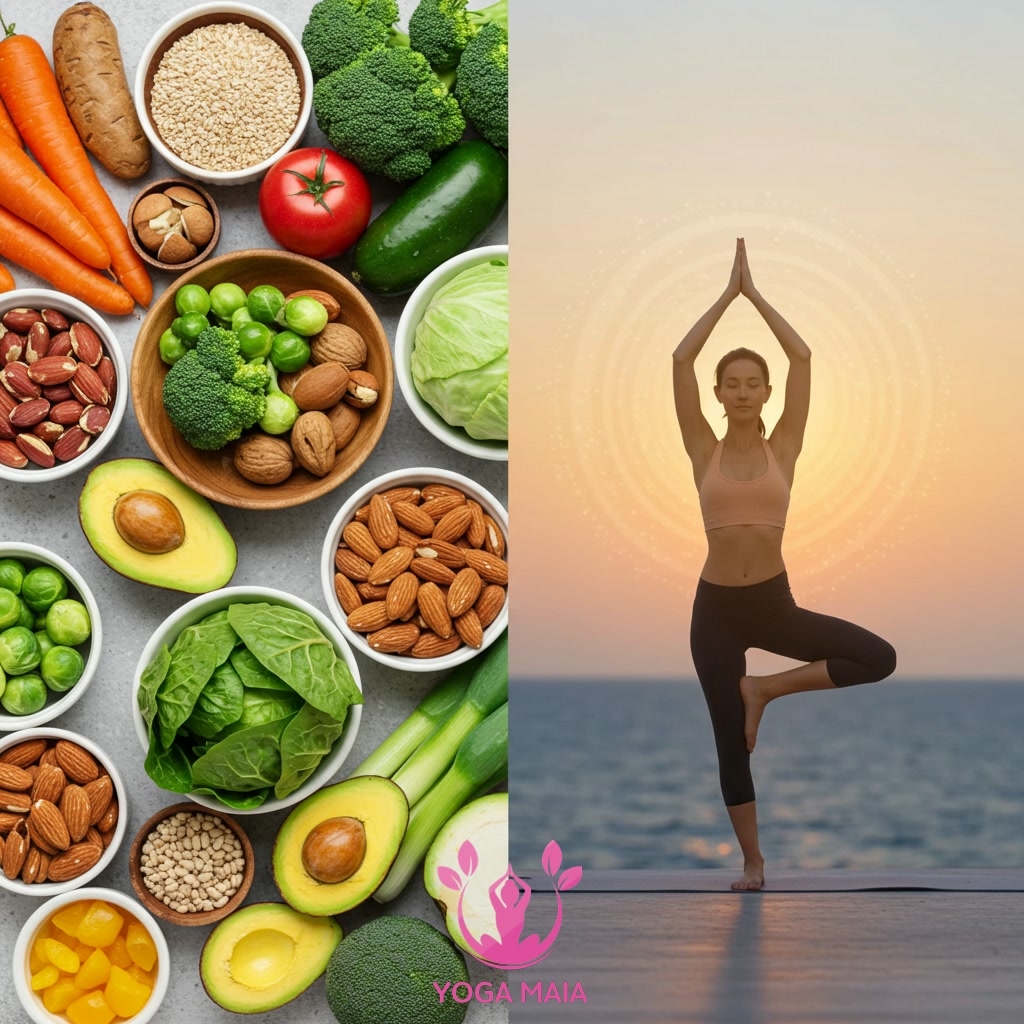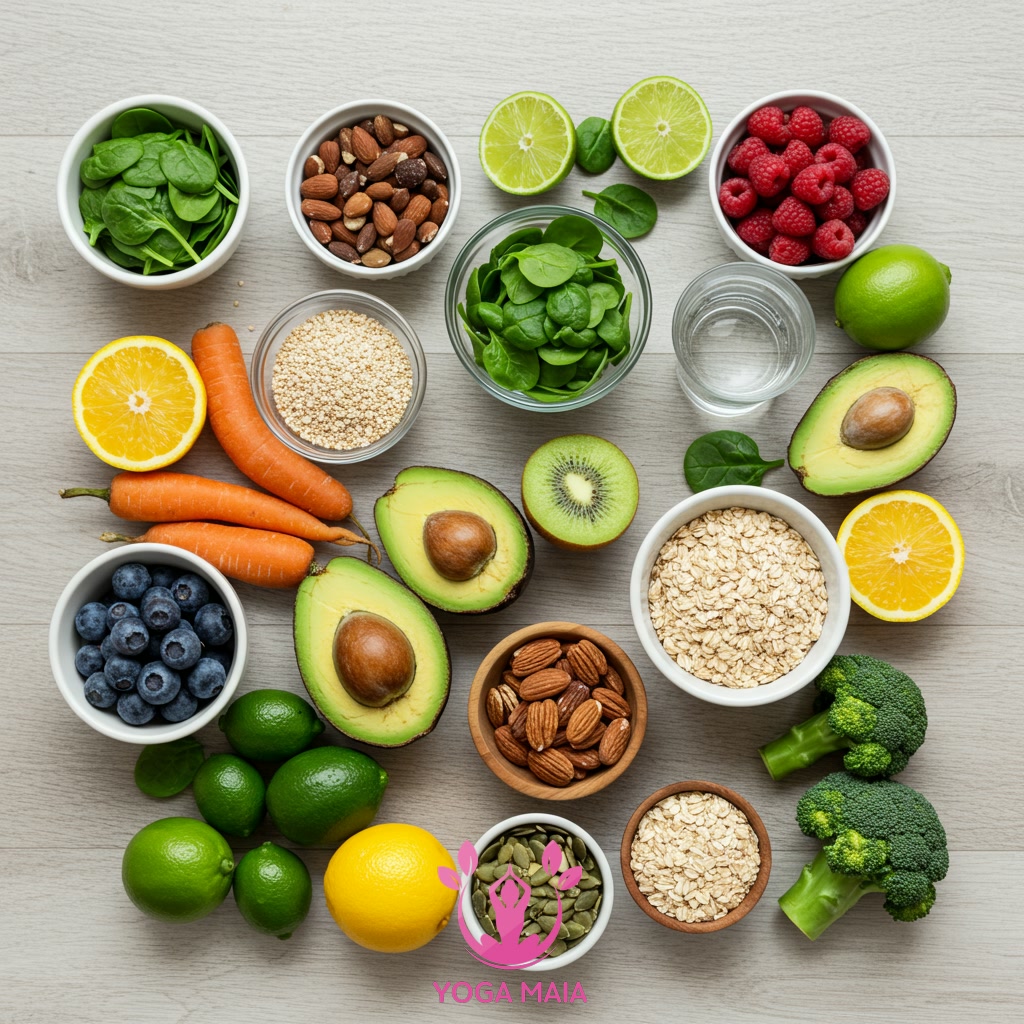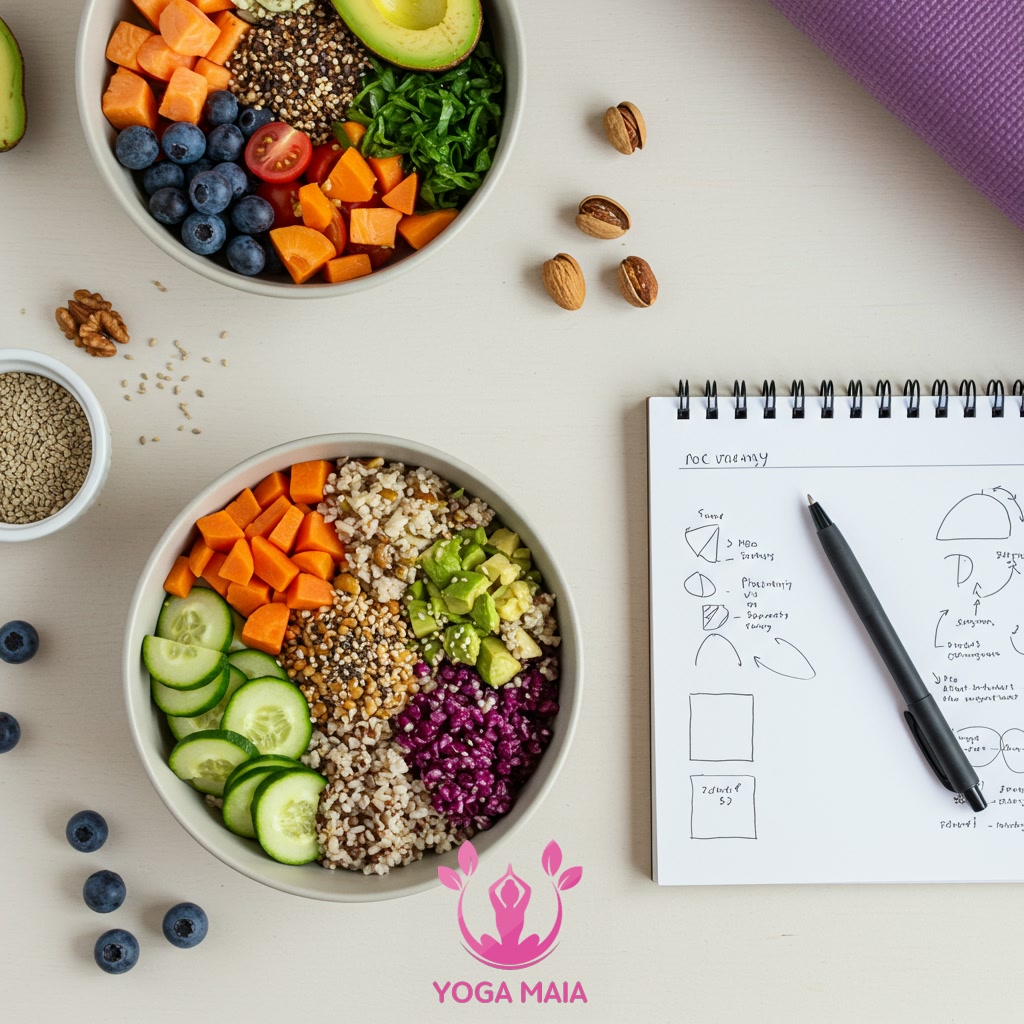Yoga Blog
Optimal Nutrition for Yoga Practitioners: Crafting Your Balanced Meal Plan

This content explores the vital role of optimal nutrition in supporting and enhancing yoga practice. It provides guidance on crafting a balanced meal plan specifically designed for the needs of yoga practitioners. The focus is on selecting foods that boost energy, aid recovery, and improve flexibility, contributing to overall well-being. Understanding these nutritional principles helps individuals align their diet with their yoga goals for improved performance and health.
Table of Contents
- Section 1: The Synergy: Why Nutrition is Key for Your Yoga Practice
- Section 2: Foundational Nutritional Principles for Yoga Practitioners
- Section 3: Essential Macronutrients and Micronutrients for Flexibility and Energy
- Section 4: Meal Timing: Fueling Up Before and Recovering After Yoga
- Section 5: Crafting Your Personalized Balanced Yoga Meal Plan
- Section 6: Hydration and Other Dietary Considerations for Yogis
Section 1: The Synergy: Why Nutrition is Key for Your Yoga Practice
Optimal nutrition is not merely an accessory to your yoga practice; it is a fundamental pillar that supports and amplifies its benefits. Just as a strong foundation is crucial for a stable structure, the fuel you provide your body directly impacts your ability to perform poses with grace and strength, maintain focus during meditation, and recover effectively. Adequate nutrients ensure your muscles have the energy needed for challenging asanas, your joints remain supple, and your mind stays clear and present. This symbiotic relationship means that nourishing yourself properly enhances flexibility, improves endurance, reduces the risk of injury, and promotes a sense of lightness and well-being that resonates both on and off the mat. Understanding this synergy is the first step towards integrating diet into your holistic yoga journey for transformative results.
 The Synergy: Why Nutrition is Key for Your Yoga Practice
The Synergy: Why Nutrition is Key for Your Yoga Practice
Section 2: Foundational Nutritional Principles for Yoga Practitioners
Building upon the idea of nutrition as a vital foundation, foundational nutritional principles for yoga practitioners center on nourishing the body to support flexibility, energy levels, and recovery. This involves prioritizing whole, unprocessed foods such such as fruits, vegetables, lean proteins, and complex carbohydrates, which provide sustained energy for practice and aid in muscle repair. Adequate hydration is also paramount, as water is essential for joint lubrication and overall cellular function, crucial for deepening poses and preventing cramps. Furthermore, understanding the timing of meals relative to practice can optimize performance and comfort. These principles lay the groundwork for a diet that complements the physical and mental demands of yoga, enhancing both the practice itself and overall well-being off the mat.
 Foundational Nutritional Principles for Yoga Practitioners
Foundational Nutritional Principles for Yoga Practitioners
Section 3: Essential Macronutrients and Micronutrients for Flexibility and Energy
Building upon foundational nutritional principles, understanding essential macronutrients and micronutrients is key for optimizing yoga practice. Macronutrients – carbohydrates, proteins, and fats – provide the bulk of our energy and building blocks. Carbohydrates are crucial for sustained energy during longer sessions, while protein is vital for muscle repair and growth, supporting increased flexibility and recovery. Healthy fats support joint health and hormone balance, both important for ease of movement and overall vitality. Micronutrients, including vitamins and minerals, act as catalysts for countless bodily functions, from energy metabolism and nerve function to bone health and immune support. Specific micronutrients like B vitamins aid energy production, calcium and magnesium support muscle and nerve function essential for flexibility, and antioxidants help manage cellular stress. A balanced intake of these essential components ensures the body has the resources needed to perform poses effectively, recover efficiently, and maintain the energy required for a consistent and fulfilling yoga journey.
 Essential Macronutrients and Micronutrients for Flexibility and Energy
Essential Macronutrients and Micronutrients for Flexibility and Energy
Section 4: Meal Timing: Fueling Up Before and Recovering After Yoga
Understanding the timing of your meals around your yoga practice is just as crucial as what you eat. To fuel your body effectively for a session, aim to consume a light, easily digestible snack rich in simple carbohydrates about one to two hours beforehand. This provides readily available energy without causing digestive discomfort during poses. Avoid heavy meals or foods high in fat and protein right before practice, as they take longer to digest and can feel uncomfortable. After your yoga session, particularly if it was intense, focus on replenishing energy stores and aiding muscle recovery. Consuming a balanced meal or snack containing both carbohydrates and protein within 30-60 minutes post-practice can significantly enhance recovery and prepare your body for future sessions. Staying well-hydrated throughout the day, especially before and after practice, is also fundamental for optimal performance and well-being.
 Meal Timing: Fueling Up Before and Recovering After Yoga
Meal Timing: Fueling Up Before and Recovering After Yoga
Section 5: Crafting Your Personalized Balanced Yoga Meal Plan
Moving beyond meal timing, crafting your personalized yoga meal plan involves selecting nutrient-dense foods that support your specific practice needs and overall well-being. Focus on incorporating complex carbohydrates like whole grains and vegetables for sustained energy, lean proteins for muscle recovery and strength, and healthy fats from sources like avocados, nuts, and seeds to aid nutrient absorption and provide satiety. Tailor portion sizes and food choices based on the intensity and type of your yoga sessions. Listen to your body’s signals, ensuring adequate hydration throughout the day, and embrace a variety of colorful whole foods to optimize your nutritional intake and enhance your flexibility and vitality on and off the mat.
 Crafting Your Personalized Balanced Yoga Meal Plan
Crafting Your Personalized Balanced Yoga Meal Plan
Section 6: Hydration and Other Dietary Considerations for Yogis
Hydration is paramount for yoga practitioners, significantly impacting flexibility, energy levels, and muscle recovery. Dehydration can lead to fatigue, stiffness, and increased risk of cramps or injuries. Aim to drink plenty of water throughout the day, especially before and after your practice. While water is the primary source, incorporating herbal teas or naturally flavored water can also contribute. Beyond hydration, other dietary considerations include timing your meals – avoid heavy meals immediately before practice to prevent discomfort. Opt for a light snack if needed, like a piece of fruit or a small handful of nuts, about 60-90 minutes prior. Pay attention to how different foods make you feel during and after your practice, adjusting your diet to support optimal performance and a comfortable experience on the mat.
 Hydration and Other Dietary Considerations for Yogis
Hydration and Other Dietary Considerations for Yogis












